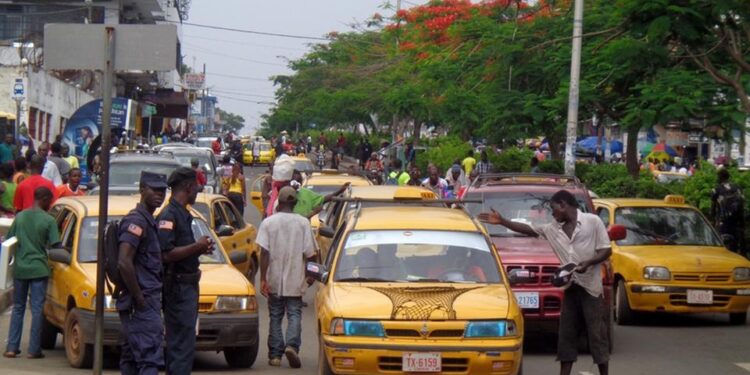IN A NOTABLE display of responsiveness to economic pressures, the Liberian government, through the Liberia Petroleum and Refinery Company (LPRC) and the Ministry of Commerce and Industry, has reduced petroleum product prices three times since February. This string of reductions should theoretically bring substantial financial relief to the average Liberian, particularly those dependent on public transportation. Unfortunately, this potential relief remains a distant dream for many due to the Ministry of Transport’s glaring inaction on fare regulation.
THE REDUCED PRICES of petroleum products have not been mirrored by corresponding reductions in transportation fares, a failure that stems directly from the Ministry of Transport’s lack of regulatory enforcement. This oversight has effectively handed over the power to set fares to commercial vehicle operators – taxi drivers, buses, kehkeh, and motorcyclists. Consequently, despite the drop in petroleum prices, the financial burden on ordinary Liberians remains unchanged, if not exacerbated.
PUBLIC TRANSPORTATION is the lifeline for many citizens, particularly those languishing at the lower end of the socioeconomic ladder. For these individuals, the cost of daily commutes represents a significant portion of their meager incomes. The Ministry of Transport’s failure to act decisively and regulate fares in line with reduced fuel costs is an injustice to these citizens. It undermines the government’s efforts to mitigate the economic strain on its people and questions the effectiveness of its governance structures.
THE MINISTRY OF TRANSPORT’S primary mandate includes ensuring a fair and efficient transportation system. The recent reductions in petroleum prices should have triggered an automatic review and adjustment of transport fares. Yet, months have passed without any directive from the Ministry, leaving commuters at the mercy of commercial drivers.
THIS LACK OF ACTION suggests a disconnect between the Ministry of Transport and the realities faced by the public. The Ministry’s silence and inaction convey a message of indifference to the plight of ordinary Liberians who are struggling to make ends meet. This is unacceptable. The government’s role is to serve and protect its citizens, ensuring that economic benefits, such as reduced fuel costs, are effectively passed down to the people.
IT IS HIGH TIME for the Ministry of Transport to fulfill its duties. An immediate release of a revised fare list that reflects the current lower fuel prices is imperative. This move will not only bring much-needed financial relief to commuters but also restore confidence in the government’s ability to manage the transport sector efficiently. Furthermore, it will send a strong message to commercial vehicle operators that fare regulation is a priority and non-compliance will not be tolerated.
THE MINISTRY MUST also establish a robust monitoring and enforcement mechanism to ensure that commercial drivers adhere to the revised fare structure. This involves regular checks and penalties for non-compliance. In the long term, there should be a transparent, dynamic system in place that automatically adjusts fares in response to fluctuations in fuel prices, protecting commuters from arbitrary fare hikes and ensuring fairness across the board.
INACTION IS NOT AN OPTION. The Ministry of Transport must rise to the occasion and address this critical issue without further delay. The benefits of reduced petroleum prices must be felt by all, especially those who depend on public transport. This is not just a matter of economic policy; it is a matter of social justice and equity.
THE GOVERNMENT has made commendable strides in reducing petroleum prices, but this effort is incomplete without corresponding adjustments in transportation fares. The Ministry of Transport has a pivotal role to play in ensuring that the economic benefits of reduced fuel costs are passed down to the people.
THE ORDINARY LIBERIAN deserves better. It is time for the Ministry of Transport to act and deliver on its mandate, ensuring that the fruits of government policies reach every citizen, particularly those who need it the most.









Discussion about this post